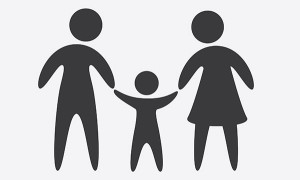When you started having children, didn’t you just feel overwhelmed by the gargantuan task of raising them, with dreams of seeing them grow up to be well-rounded and well-adjusted adults? But how do you do it? Will you be helicopter mom or dictatorial dad? Or will you let them find their own way through the world, trial-and-error style? Take comfort in the knowledge that you’re not alone. In fact, almost every parent has gone through the same dilemma.
Fortunately for the Gen Xers, Gen Yers and the millennials, American developmental psychologist Diana Baumrind came up with ground-breaking research on parenting styles in 1966. First there were three (by Baumrind,) and then Maccoby and Martin added one to make four.
These four parenting styles are the generally recognized standards use by parents today in child-rearing. Each one has its own peculiar characteristics in the discipline of the child and each style also has different outcomes on the child. Psychologists agree that authoritative parenting is the most successful of the four styles, based on the child’s development and performance.
One thing to keep in mind though is, each child is different and what is good for one may not be the best for another. There is no universally accepted one-size-fits-all parenting technique. It’s still a matter of getting to know each of your children’s strengths and weaknesses and tweaking parenting techniques to suit them.
To help you along, it’s a good idea to keep a journal where you can write down anything that pertains to parenting, your child’s moods and behavior in various situations and your own feelings and reactions to both good and bad events. If you have difficulty matching words to your thoughts and ideas, go to https://www.advancedwriters.com/custom-essay/ for help.
Authoritative Parenting
The authoritative style of parenting is characterized by the remarkable involvement of the parents in the child’s growing up years and a good balance of control and autonomy.
They guide the child’s development and set up reasonable rules that the child is expected to follow. At the same time, they allow flexibility as needed. They give positive reinforcement for the child to achieve maximum potential but do not punish the child if some objectives are not met.
Children who grow up under authoritative parenting are self-confident without being boastful, can carry on harmonious relationships, do well in their chosen career and have a generally happy disposition.
Authoritarian Parenting
Authoritarian parents set rigid and absolute rules that the child must follow without question. Communication is not a two-way street and they do not tolerate disobedience or discussions. The control of these parents over their child’s decisions and behavior is complete and irrefutable.
Children of authoritarian parents exhibit a high level of anxiety and lack self-esteem which leads to emotional problems. Sons often have anger management issues while daughters constantly seek approval from others.
Permissive Parenting
Permissive parenting does not set rules or limits for the child to follow; hence, there is no punishment for what society sees as bad behavior. The child has the freedom to make his own decisions and must bear the consequences, if there are any. Permissive parents do not see themselves as role models for the child to emulate, allowing the child to develop on his own. Since they are not authoritarian figures, these parents are openly affectionate, warm and loving.
Children of permissive parents have good social skills and high self-esteem. They do not suffer from depression as much as other children do. But because of the lack of guidance, they do not do well in school and engage in risky behavior, such as alcohol and drug use, casual sex and are insensitive to the needs of others.
Neglectful Parenting
Neglectful parenting is characterized by uninvolved, disinterested and emotionally detached parents. They may fulfill their child’s physical needs and, in worse cases, even those are not met. While the neglectful parent displays an utter lack of concern for the child, in return, he or she does not make any demands at all. This neglect may be due to psychological conditions like severe depression or substance abuse, or simply being too focused on work.
Children of neglectful parents are the worst off compared to children brought up on the other parenting styles. They have numerous social and emotional problems, have poor grades in school or may drop out of school altogether. They have difficulty with relationships with other people and may be abusive and hostile. They are also at greater risk for drug and alcohol abuse.
How Does Parenting Affect Personality?
Originally posted on April 20, 2016 @ 10:53 am
